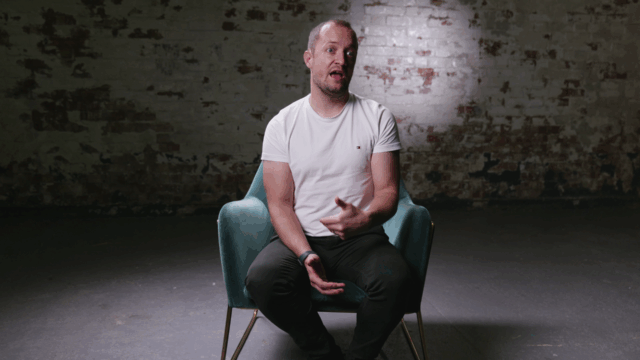Board meetings aren’t just about presenting numbers – they’re where strategy is shaped, risks are weighed, and future decisions are made.
The best finance leaders don’t just report the figures; they guide the conversation, challenge assumptions, and make sure the board is focusing on what really matters.
That all starts before you walk into the room.
If you’re leading finance – whether as a CFO, Finance Director, or stepping up into the role – consider these questions to keep your next board meeting sharp, relevant, and impactful.

Tell a Clear Financial Story
If your board can’t follow your narrative, you’ve already lost them. Too often, finance leaders bury the room in technical jargon, dense charts, or spreadsheets that only the finance team could understand. When that happens, the real conversation gets derailed – and the board’s focus shifts from strategy to trying to decode the basics.
Before every meeting, challenge yourself with three simple questions:
-
Are we telling a clear financial story?
-
Can non-finance stakeholders follow our narrative?
-
How are we tracking against our strategic objectives?
Boards don’t just want numbers. They need to understand the implications of those numbers – how performance connects to strategy, risks, and opportunities. That means translating data into insights, and then turning those insights into a story that explains where the business stands and where it’s going.
Pro tip: Design your pack for clarity, not clutter. Every slide should earn its place. If your presentation looks like it belongs in an accounting textbook, you’ll spend half the meeting explaining it instead of discussing the decisions it should drive. Keep it sharp, visual, and focused on the points that matter most.
Stay Ahead of Risk
Boards don’t just want to know where the business has been – they want to know what’s coming next. A strong finance leader doesn’t wait for problems to show up in the numbers; they’re proactive in spotting risks early and surfacing them clearly. That’s how you move from being a reporter of the past to a trusted guide for the future.
Before you walk into the room, ask yourself:
-
What are the three most material risks right now?
-
How confident are we in our forecasts?
-
What’s changed in the external environment?
-
What assumptions underpin our plans?
This isn’t about pretending you can predict the future – it’s about making sure the board understands which factors could shift it. Currency swings, supply chain constraints, interest rate changes, customer churn – whatever the stress points are, put them on the table early.
The benefit is twofold: it builds credibility for you as a leader who sees around corners, and it helps the board make sharper, more informed decisions. Risk that has been identified and explained can be managed. Risk that has been ignored will manage you.
Protect Financial Health
A business can look profitable on paper while quietly bleeding cash. Boards rely on finance leaders not just to report performance but to spotlight the pressure points that could destabilise financial health.
Before the meeting, ask yourself:
-
What are our cash pinch points this year?
-
Is our working capital under control?
-
Are our cost controls sustainable?
Temporary fixes or one-off savings might look good in a single set of numbers, but they rarely hold up under sustained pressure. Boards need to understand not only where the weaknesses are, but also how durable your solutions really are.
The best finance leaders don’t stop at flagging risks – they frame opportunities too. Show the board how tighter controls, better forecasting, or smarter capital allocation could strengthen the business long term. Protecting financial health isn’t just about avoiding problems; it’s about building the foundation for sustained growth.

Drive Accountability and Action
Board meetings aren’t meant to be status updates. If your pack simply reports on what’s already happened, you’ve missed an opportunity. The real value comes when the board discussion drives accountability and pushes the business forward.
Before you step into the room, ask yourself:
-
Have we made progress on key initiatives?
-
What decisions do we want from the board?
-
Is our reporting format helping or hindering discussion?
A strong finance leader frames the conversation around outcomes, not updates. If a major initiative is stalling, highlight it honestly and propose next steps. If performance is on track, show how momentum can be leveraged to accelerate growth. And if trade-offs are required, set out the options clearly so the board can make informed decisions.
Most importantly, don’t leave your ask to chance. Walk into the meeting knowing exactly what you need – whether that’s approval for an investment, sign-off on a strategic shift, or backing to accelerate a project. By driving the agenda with clarity, you move the board from passive observers to active decision-makers, and you position finance as the function that makes progress happen.
Plan for the Unexpected
Good finance leaders hope for the best. Great ones plan and prepare for the worst. Boards want confidence that finance isn’t just tracking performance but thinking several moves ahead – anticipating risks, running scenarios, and preparing responses before they’re needed.
Before your next meeting, ask yourself:
-
Are there early signs of underperformance?
-
Have we stress-tested our downside scenario?
Spotting issues early is half the battle. The sooner you see a downturn coming – whether that’s slipping sales, rising costs, or external shocks – the more options you have to respond. Waiting until the numbers are already in the red limits flexibility and erodes trust.
Great finance leaders don’t just surface problems – they walk into the boardroom with credible solutions. That could mean outlining contingency plans for cash flow, presenting options for cost reduction, or modelling alternative growth strategies. By pairing foresight with practical next steps, you’ll not only command the board’s attention but also strengthen their confidence in your leadership.
Final Thought
Strong board meetings don’t happen by accident. They’re the result of preparation, insight, and the ability to go beyond the numbers.
For finance leaders, asking these questions before every meeting ensures you guide the conversation, focus attention on what really matters, and turn board time into valuable progress.
And if you’re building a finance leadership team, you need people who can do more than just report. You need people who think commercially, influence decisions, and help the business see around corners.
At We Do Group, we specialise in finding those leaders – finance professionals who don’t just report, but lead and provide real value in the boardroom and beyond.
Need help?





